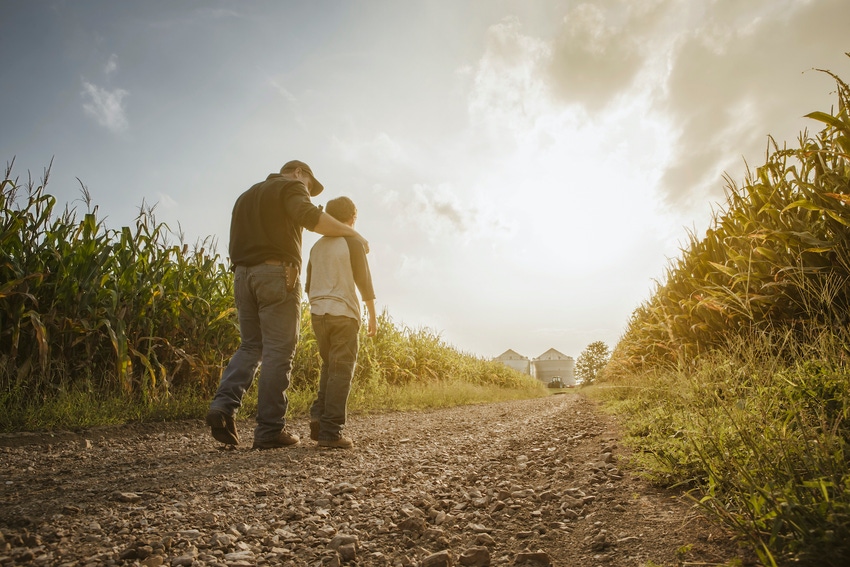
In my last article, What would happen if your farm appraised for $30,000 per acre?, I wrote about the recent buzz over a northwest Iowa farm that recently brought $30,000 per acre at a public land auction! I explained why land appraisals matter for estate valuation purposes, establishing a new step-up in cost basis and by default many estate settlements use an appraisal to help establish the price for buyouts between family members.
Family buyout dilemma
A couple of years ago, I shared an example of an Illinois family I was working with who projected their farm would appraise for near $12,000 per acre. Today, the same farm may appraise for over $20,000 per acre. After applying a 25% family discount, the farming heir had the option to buy out his three siblings for $9,000 per acre.
One of the three non-farming heirs found it difficult to accept a 25% discount equated to over $1 million dollars to be taken off the appraisal of the 400 acres. Was this discounted price earned?
On the other hand, the farming heir couldn’t believe the purchase price was $9,000 per acre, even after the discount! No way would Mom or Dad expect someone in the family to pay this much for the farm which has already been paid for three times each generation it’s passed down. Unfortunately, no one will ever know as they hadn’t updated their wills for over 10 years and time and rising land prices may have passed them by.
The good news is this family chose to honor their parents' wishes and they will still meet this Thanksgiving holiday for a nice family gathering. The bad news is even after taking off a quarter of the inheritance, the farming heir will struggle for many years making his annual farm payment which exceeds $500 per acre.
Know your numbers
This scenario illustrates the struggle many family farms go through during the time of an estate settlement, especially when buyouts between family may be looming. This is why we encourage you to know your farm’s numbers and I have a farm transition worksheet for reference.
Special use valuation
Another way family farms can value their farm is a 2032a special use valuation. This is for estate tax purposes, to protect a family farm if an estate tax is caused by nearby development influence. If so, the farmland can be valued for its “productive use” rather than its “highest use.” Some also refer to this as the practical use.
If elected, there are certain guidelines that must be followed and certain requirement to qualify. I won’t go into details about those, but attorney Mark Balzarini wrote about them in detail.
The special use value is based on a calculation of the five-year average gross cash rent for comparable land reduced by property tax and divide by the average annual effective interest rate of a regional Federal bank loan.
If you think about it, this is similar to how most commercial real estate is valued as well as small businesses. In these cases, an interested buyer analyzes the net income of the real estate or the business in relation to current interest rates.
For example, the calculation for the farm in northwest Iowa that brought $30,000 per acre may look like this:
Five-year average rent: $350/acre
Property taxes: $35/acre
Interest rate factor: 4.57%
Formula: $350 rent - $35 taxes = $315 net income / 4.57% = $6,890 per acre
Conclusion
If special use valuation and an auction yielded the same result, the farm economy would be in equilibrium for land values and farm succession planning would be considerably less burdensome. We are obviously not operating in an area of equilibrium as most farm purchases aren’t based on the farm’s income or productive value and require subsidization from other income sources.
We are starting to see more and more families use the special use valuation method, not for estate tax purposes, but to establish their practical family value and support their goal that the farm stays in the family. I encourage you to decide what the fair value is for your family farm and update your estate planning to complement it. Otherwise, unintended consequences could occur from a super high land appraisal as time and rising land prices pass you by.
Downey has been helping farmers and landowners for the last 22 years with their family farm transition, estate planning, leasing strategies, finances, and general land consultation. He is the co-owner of Next Gen Ag Advocates and an associate of Farm Financial Strategies. Reach Mike at [email protected].
About the Author(s)
You May Also Like






